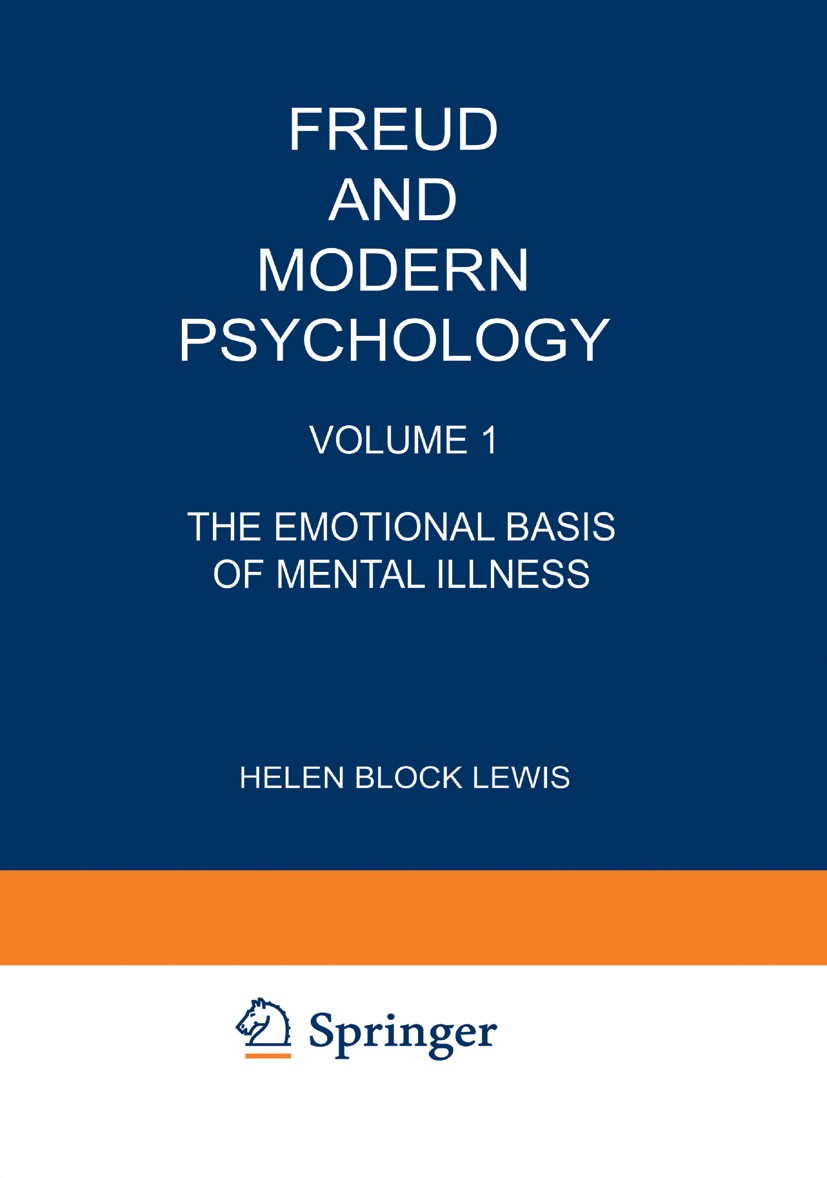| 书目名称 | Freud and Modern Psychology | | 副标题 | Volume 1: The Emotio | | 编辑 | Helen Block Lewis | | 视频video | http://file.papertrans.cn/349/348270/348270.mp4 | | 丛书名称 | Emotions, Personality, and Psychotherapy | | 图书封面 |  | | 描述 | The tension between Freud‘s clinical discoveries about the power of human emotions and the theoretical framework in which he embedded these discoveries has been most eloquently detailed by Freud himself. His agoniz ing reappraisal. in 1926, of the libido theory of anxiety is just one example. But, as is usually the case, theoretical difficulties point to gaps in existing knowledge. At the time when Freud made his fundamental discovery that hysterical symptoms (and dreams) were understandable as reflections of for bidden ("strangulated") affect, anthropology was essentially nonexistent as a science. The cultural nature of human beings (our species‘ unique adaptation to life) could only be adumbrated by Freud (for example, in the myth of Totem and Taboo). As a consequence, the primacy of human attachment emotions in the acculturation process could not be postulated as a theoretical base. What Freud adopted as his base of theorizing was the most forward looking materialist concept of his time: the Darwinian concept of individual instincts as the driving force in life. Freud assumed that the vicissitudes of in stincts determine the fate of "ideas" in consciousness. Freud‘s theoreti | | 出版日期 | Book 1981 | | 关键词 | anxiety; emotion; psychology | | 版次 | 1 | | doi | https://doi.org/10.1007/978-1-4684-3812-3 | | isbn_softcover | 978-1-4684-3814-7 | | isbn_ebook | 978-1-4684-3812-3 | | copyright | Springer Science+Business Media New York 1981 |
The information of publication is updating

|
|
 |Archiver|手机版|小黑屋|
派博传思国际
( 京公网安备110108008328)
GMT+8, 2026-1-13 00:20
|Archiver|手机版|小黑屋|
派博传思国际
( 京公网安备110108008328)
GMT+8, 2026-1-13 00:20


